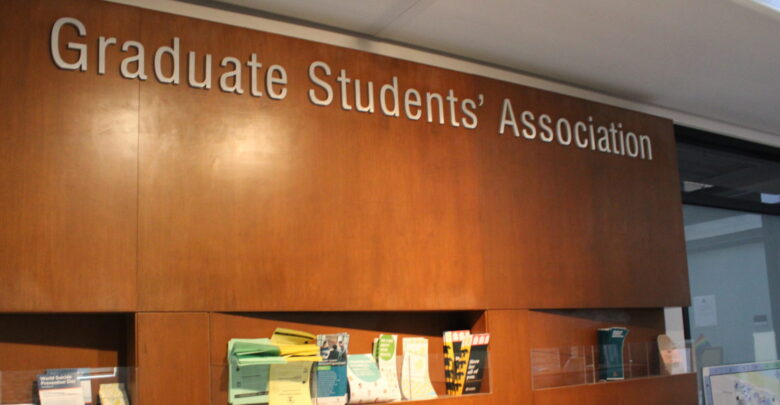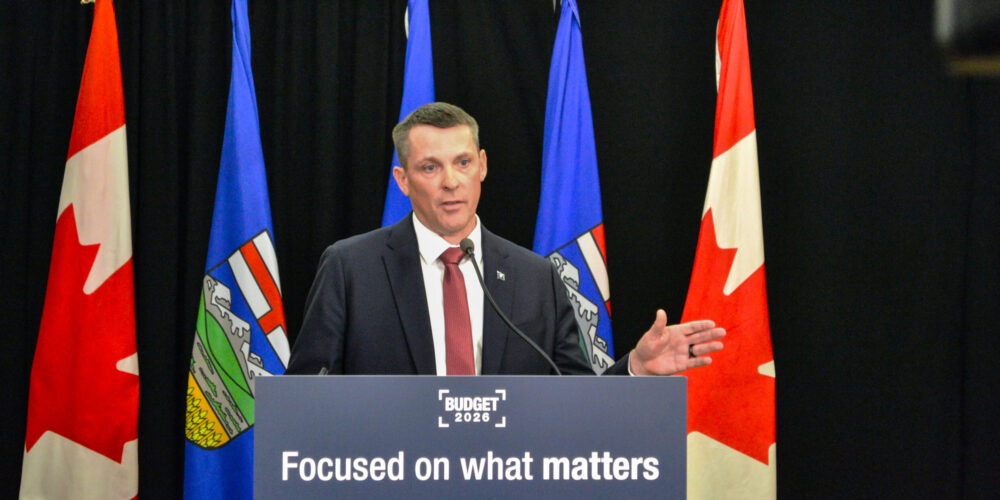GPS council approves minimum guaranteed funding to start fall 2025
PhD students beginning their degrees in fall 2025 will have guaranteed funding of $25,000 per year for the first four years of their degrees.
 Amanda Sparks
Amanda SparksOn April 17, the University of Alberta Graduate and Postdoctoral Studies (GPS) Council approved minimum guaranteed funding for PhD students beginning their degrees in fall 2025. For the first four years of their degrees, these students will have guaranteed funding of minimum $25,000 per year.
Currently, few departments have minimum guaranteed funding in place, according to Bishoi Aziz, the 2023-24 president of the Graduate Students Association (GSA). The GSA began advocating for minimum guaranteed funding in 2019. Their progress was temporarily halted by the COVID-19 pandemic, academic restructuring, and funding cuts by the provincial government.
In the 2022-23 academic year, the GSA reintroduced the idea to university administration. The GSA was involved with consultation and developing the proposal for the GPS council. The university has also created an implementation group, which the GSA has gained a seat on, Aziz said.
GSA does not think $25,000 is sufficient funding, Aziz says
When the GSA council discussed minimum guaranteed funding, Aziz said they “unanimously supported the project.”
“The concerns that we have is around the amount itself. We believe that $25,000 per year is not enough and that the university needs to work fast towards increasing that amount,” Aziz said.
In 2023, the GSA surveyed U of A graduate students and found that 40 per cent had considered dropping out due to financial challenges. Considering inflation, currency devaluation, and other financial challenges, Aziz said $25,000 “doesn’t even make ends meet.”
Another concern the GSA has is that there is no proposal for minimum guaranteed funding for thesis-based masters students. According to Aziz, the work thesis-based masters students complete contributes to the U of A’s research output and costs the university relatively little.
“Generally, thesis-based students are the real force behind the wheel for research. They are the ones who are performing most of the work.”
With the university’s recent losses in provincial funding, Aziz said the university has lost a lot of non-academic staff. Work that was performed by non-academic staff is now falling on the shoulders of thesis-based students, Aziz said.
“The least that we can do is acknowledge the student work with guaranteed funding.”
Current funding amount is “a starting point” for GPS council, Tracy Raivio says
At the GPS Council meeting, the proposal received strong support with over 80 per cent of voters supporting the proposal, according to Tracy Raivio, vice-provost and dean of the faculty of graduate studies and research. The GPS council is aware that many graduate students face financial difficulties during their degrees, she said.
“By making that commitment as a whole university to support PhD students in years one through four, the idea is that that’s going to give students more space and time to pursue their studies.”
Raivio agreed with Aziz that $25,000 is not sufficient funding. When bringing the proposal to the GPS Council, Raivio said there were concerns about ensuring that the proposal was feasible.
“We really didn’t want to propose something that was not attainable and then to have this initiative fail.”
She also noted that many PhD students receive funding at levels above $25,000. By beginning funding at $25,000, Raivio said this gives GPS a starting point to keep moving forward.
“It’s not like we stopped here and that we’re done. This is a starting point for us to continue our conversations and our work on supporting our graduate students to the best of our ability and in as equitable a fashion as we can.”
According to Raivio, funding PhD students in particular is also another starting point. Thesis-based masters students are a “natural next group of students we would think about going forward.”
“There’s going to be an adjustment period to this while we do that work of implementation,” Raivio says
PhD students contribute significantly to the U of A in terms of research and teaching, Raivio said. Although they’re a small population, “they’re really critical to our mission as a research intensive university.” Raivio thinks that minimum guaranteed funding will help attract PhD students to the U of A.
Additionally, Raivio said she hopes minimum guaranteed funding will help retain PhD students. This is something they will track, she said.
In the past months, Raivio has been asked if minimum guaranteed funding will restrict the ability of certain faculties or departments to admit PhD students. Her answer to this is “maybe.”
“There’s going to be an adjustment period to this while we do that work of implementation.”




